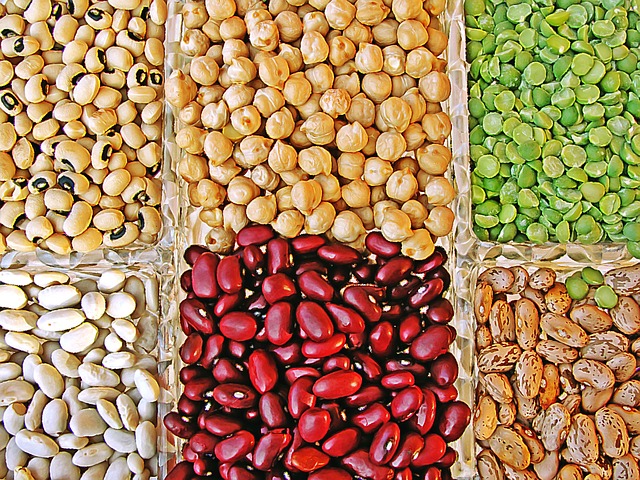Today is National Bean Day. Beans (or legumes) are packed with vitamins, minerals, are an excellent source of protein, and low in fat. Additionally, beans are high in fiber. Research has shown that beans may lower blood sugar which helps in the management of type 2 diabetes. It also can lower bad cholesterol and triglycerides. For some, eating beans can cause uncomfortable gas. Fortunately, there are some things you can do to reduce the gaseous after effects.

-Soak your beans for 12 to 24 hours. This reduces a good amount of the indigestible part of the bean.
-Know your beans. Some beans, like adzuki, mung beans, lentils, split peas, and black-eyed peas produce less gas than others. High gas producing beans include lima, pinto, whole soy beans, and navy beans.
-Add beans to your diet slowly so your body can get used to the fiber. Start off with small portions once or twice a week and slowly increase your intake.
-Chew your beans thoroughly to help break them down for digestion.
And finally, you can always take Beano or other gas busting tablets to reduce gas production.
So in honor of National Bean Day, prepare a bean dish today! You can find delicious recipes at Bean Institute website.
One of my favorites (because it’s super easy) is the Breakfast Bean Burrito. See the recipe below.

Breakfast Bean Burrito
Ingredients:
1 -10” flour tortilla, plain or whole wheat
3/4 cup canned, drained, and rinsed reduced sodium black or pinto beans
1 scrambled egg
¼ cup shredded Cheddar or Monterey Jack cheese
2 tablespoons of your favorite salsa
Directions:
1. Lay the tortilla on a dinner plate.
2. Place the beans in the center, top with the scrambled egg, cheese and salsa.
3. Fold in the ends, and then roll up to form a burrito.
4. Microwave for 45-60 seconds.
Suggested Serving: Add additional salsa and/or plain, low-fat Greek yogurt for extra flavor and protein!
-Lisa
Source: http://www.health.harvard.edu/blog/recipe-for-health-cheap-nutritious-beans-201211305612